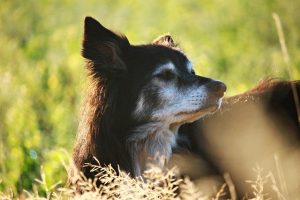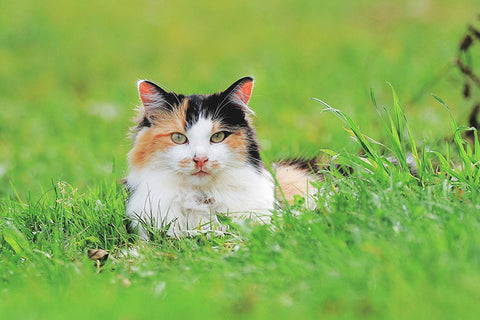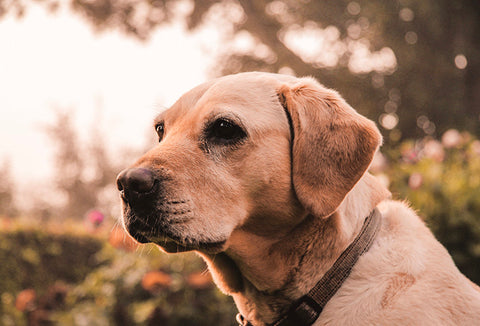Caring for Your Aging Pet

It’s hard to see our beloved pets grow older. Because their lifespans are so much shorter than ours, their old age can often sneak up on us. One minute they’re healthy and in their prime, and the next minute they’re showing signs of arthritis or kidney disease.
At some point, we may need to make the choice to let them go to avoid unnecessary suffering, but until we get to that point, here are some signs to keep an eye out for so we can make sure our aging pets are getting the care they need.

Activity Level
Your pet is probably starting to slow down, perhaps due to decreasing energy levels, arthritis, or joint problems. It’s important to take your pet to the vet to determine what the issue is and whether it can be treated.
Every so often, you'll need to adjust your pet’s living conditions and exercise habits to match their aging process. Do you place your cat’s food and water on the table to keep it out of the dog’s reach? Try creating a sort of stairway to help your kitty climb up whenever it needs to. Is your dog showing signs of joint pain? It’s probably time to trade the jogging for short walks. It may also be time for a more cushioned bed.
Animals are great maskers of pain. They can’t communicate how they feel to us, so it’s important to keep a close eye on their movements in order to observe any changes. If your pet is in pain, pain medication should be administered daily.
Loss of Appetite
Your pet will probably eat a little less while its level of activity decreases, which is normal. However, a significant drop in eating or a continually decreasing appetite is cause for alarm and could signify any number of health issues. Be sure to take your pet to the vet to count out any health problems.
Making the switch from dry to wet food, if you haven’t already, will help greatly. Wet food is gentler on the kidneys, digestive system, teeth and gums, and more. On the flip-side, if your pet tends to be overweight, it’s even more important now that your pet is placed on a diet and maintains a healthy weight. Obesity can cause or contribute to several health issues, and the extra pounds add an unnecessary amount of pressure to their feeble joints.
Potty Habits

Just like us, the older animals get, the harder it is for them to “hold it”. Your dog may have been able to “hold it” for years while you were at work during the day or sleeping through the night, but that’s an unreasonable expectation for an aging pet. If your dog can’t go outside freely through a doggy door, you may need to think outside of the box and start using potty pads or arrange for a neighbor or friend to come by your home each day. Some pet sitters and dog walkers will regularly drop by homes in their neighborhood to let dogs out for potty breaks for a small fee, so check to see if you have any in your neighborhood!
Aging cats have it a little easier since their potty is right there in the house. You may notice your kitty is peeing outside of the box more and more as it ages--if a trip to the vet counts out any health issues, you could try placing more litter boxes throughout the house. If your kitty has simply become pickier with old age, you can try scooping the litter box every day or try any of these suggestions.
Physical features
Interestingly, changing features can be a good indication that something is wrong. It can happen so slowly that we don’t notice a difference until the change is drastic.
Does your pet’s head seem to be slightly larger? Are the eyes a bit fuzzier? Is its back becoming more rounded? Certain bodily changes can signify issues like high blood pressure, hypertension, diabetes, and other conditions that--when left untreated--will lead to more problems and increased pain.
So instead of assuming that your pet’s changing features are simply part of aging, it’s better to be safe and take your pet to the vet for a check-up and testing.
Older pets may be suffering from blindness, hearing loss, disorientation, or pain, so always make sure that your aging pet is treated gently and with respect and care, particularly by children or guests who are visiting your home.


